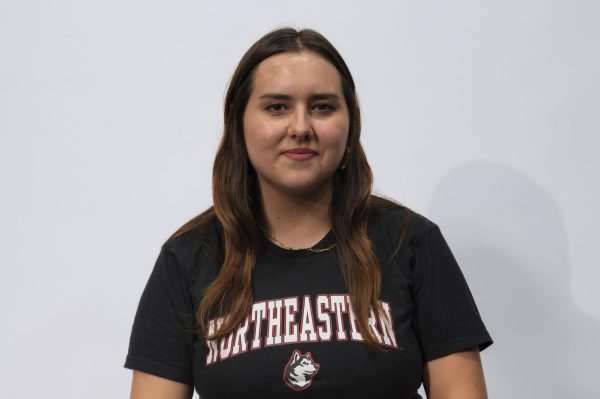After a particularly heated Thanksgiving dinner in 2020, Ben Nigrin left the table feeling defeated.
Nigrin, a Northeastern alum with a combined bachelor’s degree in criminal justice and political science, said his motivation for founding the Bipartisan Disagreement Club started at that dinner table.
“It was the classic situation that I think me and everyone else was going through at the time: A Thanksgiving dinner where no one got along,” he said.
As a way to handle the feelings associated with the situation, Nigrin founded the Bipartisan Disagreement Club at the height of the COVID-19 pandemic. Initially, the club was unofficial; however, as members began to realize the significance of its message, its goals developed.
The Bipartisan Disagreement Club summarizes its objective through its bio on its Instagram page, which reads “Seeking Common Ground Through Discussion.” The organization aims to create an environment where students can have casual conversations about political subjects to broaden their perspective, according to the website.
Meetings are structured around a themed group discussion with ground rules and moderation by the executive board. In the past, themes included the impact of AI, evaluations of this year’s presidential candidates and government restrictions on Panera’s charged lemonade.
“I think one of the biggest impacts that we have seen is just the creation of a little community, a little pocket within all of this chaos, where you can come and you can know for certain that it’s going to be consistent,” Nigrin said.
Since the meetings focus on conversations rather than debates, there are rules that help mediate the distinction. Club members convene at the beginning of each semester to devise a code of ethics. Some of this semester’s rules include “seek understanding always” and “leave your ego at the door.”
“The goal is listening and understanding versus being right. So, as a moderator, you facilitate understanding by letting people speak,” said fourth-year communication and media studies combined major Spencer Rode, the current president of the club.
Once Nigrin realized the positive impact his club had on polarizing conversations at Northeastern, he developed an interest in expanding the Bipartisan Disagreement organization into a national chapter. During a co-op for Massachusetts Governor Maura Healy’s campaign in 2022, Nigrin met Peter Koutoujian, a student at Bridgewater State University, or BSU, who helped found the second chapter of the club at BSU in 2023.
Meeting discussions do not revolve around a specific political party but rather a topic that can be analyzed in many ways. The discussions often wander from the standard structure of a two-party conversation and allow members to separate their opinions from partisan limitations.
“I think it’s a really great space on campus for people with different backgrounds and political ideologies to talk in a safe and productive way,” said Arya Venkat, a fourth-year economics major. “You have the opportunity to learn about other people’s perspectives.”
Though the Bipartisan Disagreement Club is heavily focused on discussion meetings, the organization’s website publishes articles written by members, ranging from op-eds to political hot takes. The website also features a podcast section, which, similarly to the article section, any interested person can participate in.
“I feel like the way that we prompt questions requires people to think, ‘What would I do?’ instead of, ‘What would my political party do?’” Rode said. “We never really had a registration process; that’s not what we’re all about. We’re more about people communicating their thoughts and opinions on their own terms.”
Most recently, in October, the third chapter of the student organization was established at the Emory University School of Law, where Nigrin is now seeking a law degree. The club aims to continue expanding to other educational institutions.
Though each chapter of the Bipartisan Disagreement Club shares the same fundamentals, Nigrin explains that allowing each chapter individuality in how it functions is positive because they are “harnessing the intellectual power of tomorrow’s leaders at universities and, hopefully, one day all over the country.”
The Huntington News is dedicated to serving the Northeastern University community with original, professional reporting and creating an environment in which student journalists can learn from one another. Support an independent, free press at Northeastern University with your donation today.











